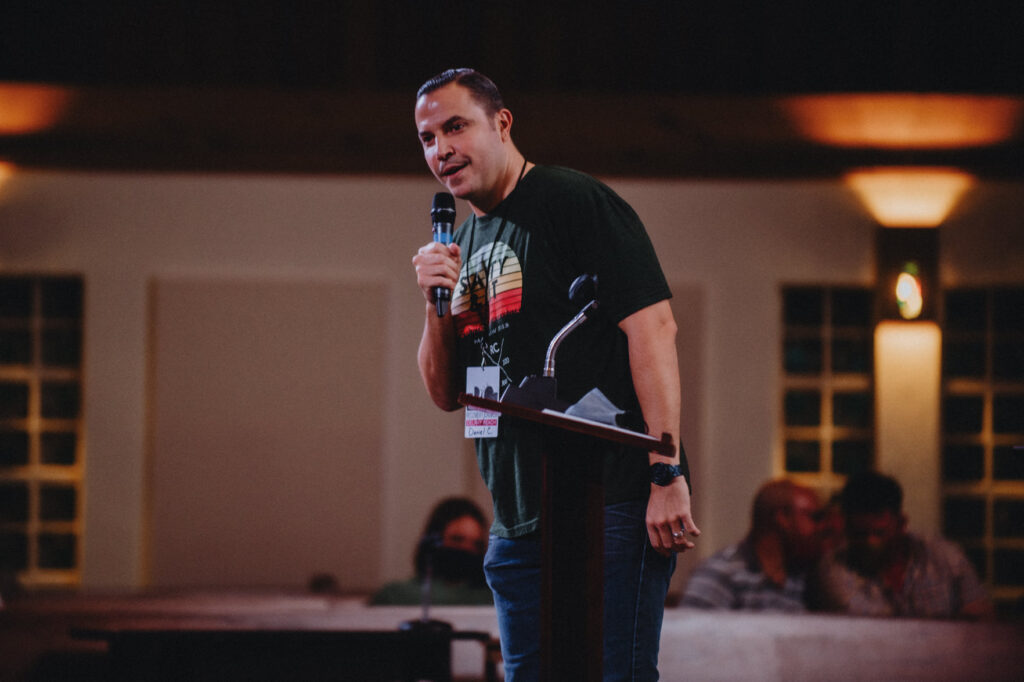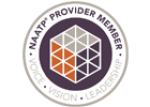Pastor Daniel Cornide, minister at Recovery Church and leader of All In Solution’s Faith Based Recovery Program, has first hand experience with overcoming addiction through faith. When asked about the success of Christian recovery programs, he answered,
“In my own personal recovery, what’s been the most important thing for me has been my personal intimate relationship with Jesus Christ. There’s nothing that’s been more transforming in my life than that, and so that is what I try to pass on to the clients in my program. This is an identity building program that lays the foundation for us to know where we come from and who we are. And these questions naturally lead back to the question about if there is a God. If there is a God, and we are created in His image, then what are we supposed to be doing down here? What’s the meaning or purpose of life?
When I was in active addiction, I had no meaning or purpose in my life. I lived life for pleasure; sex, drugs, and rock and roll. In the Bible, Jesus says, ‘what does it profit a man if he gains the whole world but loses his soul?’ This was my experience. I thought that meaning and purpose would keep me from being able to experience all the things that would ultimately bring me joy. But after actually engaging in all the things that I thought would bring me the maximum amount of pleasure, I wound up in the psych ward! So clearly the meaning of life is not simply to fulfill pleasure on the highest level imaginable. I came up empty with that plan.
So, with my clients, I start by going back to the book of Genesis. And we start with those foundational questions about where we come from. The scriptures start with one line: in the beginning, God. When people come to our program, we almost need to start with a deprogramming of their core belief systems. Most people that walk through our doors either have a very skewed concept of God or no idea of God. And as a consequence of this and their failed attempts to live life without addressing these questions, they come in with no hope, no purpose, and no meaning. What I want to teach first, through the scripture, is that there is a God and he created you in fine detail for a very specific purpose.
As a part of the third step of Alcoholics Anonymous, I ask people to think, ‘what if you were born into this time period in human history, at a very specific moment in time, to very specific parents in a very specific location, with specific gifts, in a specific culture, for a very specific purpose? Wouldn’t you like to know what that is?’ The point of all this is to stop believing the lies that there is no God, there is no purpose, and your whole identity is wrapped up in your addiction. The truth of your identity is that God says you are created in his image with a plan and a purpose.
To me, one of the most powerful scriptures in the whole Bible is Revelation 12, which says that we are made overcomes by the blood of the lamb of Jesus Christ, and by the word of our testimony. That’s why there’s so much power in the rooms of AA when someone comes and tells their story. Everything that was meant to destroy us becomes part of our testimony and that act of overcoming is an act of rewriting. Christian counselors call this narrative therapy, and that’s what we are trying to do: rewrite your life into a beautiful poem that God has written.
To recap, I think that faith-based recovery programs are effective because they provide precisely what the broken addict and alcoholic is missing: meaning and purpose. And in addition, these are usually people who are carrying a lot of guilt and shame and trauma, so forgiveness is really important. That of course means learning that we are forgiven for our sins thanks to Jesus’ blood on the cross. But it also means that if Christ can show you mercy and forgiveness that you can do the same to others. The big book says that resentment is the number one form of spiritual disease; that’s what the whole fourth step is about. We talk about this in the parable of the unforgiving servant.”






